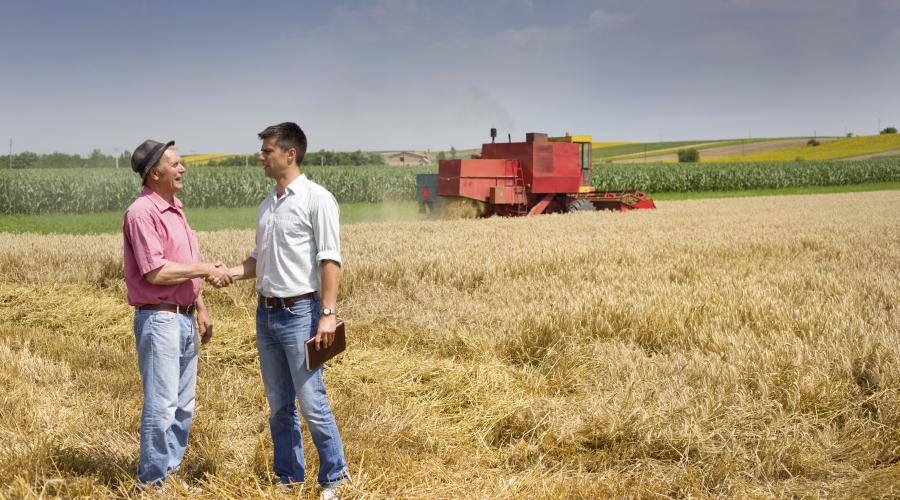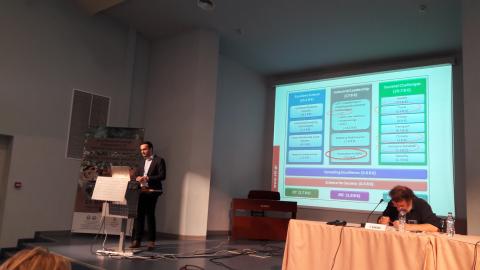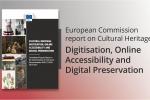
Actions highlighting the value of agri-food cultural heritage, and national and European programmes for funding proposals in the agri-food cultural heritage sector were presented at the workshop entitled, ‘Agri-food Traditions as Cultural Heritage: Research, Preservation, Promotion’ which was held on 19 May 2017, by the Directorate of Modern Cultural Heritage and Intangible Cultural Heritage of the Ministry of Culture and Sport, and the Agricultural University of Athens. The workshop, in which the National Documentation Centre (EKT) participated, was organised under the co-operation protocol between the Ministry of Culture and Sport and the Agricultural University of Athens as part of UNESCO’s Convention for the Safeguarding of Intangible Cultural Heritage to promote agri-food culture and the Greek rural environment in general as intangible cultural heritage.
More than 170 people attended the event, from producers of traditional agricultural products co-operatives (agricultural, women’s etc), officials from museums and cultural bodies, local authorities and institutions to universities and students from schools associated with the study of the agri-food heritage.
The successfully met objectives of the event were:
- To familiarise organisations and individuals not only with UNESCO’s Convention for the Safeguarding of Intangible Cultural Heritage (2003) but also its implementation in this country.
- To give information on the process for integration of agri-food culture heritage into the National Index of Intangible Cultural Heritage Greece (ayla.culture.gr) and the international directory provided by the convention.
- The presentation by competent authorities of programmes which can support (eg financially) the study, promotion and preservation of agri-food traditions as intangible cultural heritage.
- The promotion of food heritage as a field of interdisciplinary studies (graduate, post-graduate etc), not only at the Agricultural University but also at other schools and university or technical institute departments of the country.
- The co-operation and exchange of opinions between producers, scientific specialists, public services, other organisations and individuals on an interdisciplinary approach to agri-food traditions. ayla.culture.gr).
Two other workshops were held simultaneously with this event: the first was a presentation of European and domestic programmes for funding proposals in the agri-food sector, and the second presented research experiences and put forward ideas on planning and preparing joint research programmes to study and promote agri-food cultural heritage in Greece.

The National Documentation Centre (EKT), as co-ordinator of Enterprise Europe Network-Hellas, the largest Greek business support network and member of the European project INNO-4-AGRIFOOD consortium, took part in the first of these events. It was represented by Georgios Megas, Innovation Consultant and National Contact Point for Information Technologies and Communication Horizon 2020 who explained the networking and funding opportunities for outward-looking and innovative enterprises and organisations.
As co-ordinator of Enterprise Europe Network-Hellas, EKT supports such enterprises in 17 sectors, one of which is Agri-food, to gain access to new markets and capital for Research and Development via funding programmes and tools such as Horizon 2020 and the SME Instrument. In addition, through personalised counselling services, innovation management and scaling up of enterprises which it offers, interested parties can be helped in finding appropriate technology to improve their innovation.
Mr Megas presented results from the 2008-2016 period as evidence of the networking opportunities Enterprise Europe Network-Hellas offer. During this time, there were 740 business, technology and research partnerships, 1,960 Greek businesses trading in Europe, 645 business meeting events and 40,000 business and organisational inquiries.
He added that up to 70% funding can be obtained from the SME Instrument, the European Commission tool for small and medium-sized enterprises, which is divided into 3 phases:
- Phase 1: Feasibility Study ( risk assessment, design studies, market studies, exploration of intellectual property), a lump sum of 50,000 euro ( per project, not per participant), 9+1 page proposal, 6-month duration.
- Phase 2: Technological Development with Proposal Templates (planning, monitoring implementation, testing, demonstration), 500,000 to 2.500,000 euro (up to 70% of eligible costs), and a 1-2 year duration period to create a new product, process or service.
- Phase 3: Counselling and Commercialisation
The ultimate objective of the European INNO-4-AGRIFOOD consortium is to improve the co-operation between more than 11 million small and medium-sized enterprises in the Agri-food sector. To this end, its online tools and applications provide opportunities for the development of innovative partnerships.










